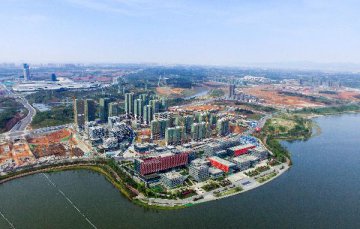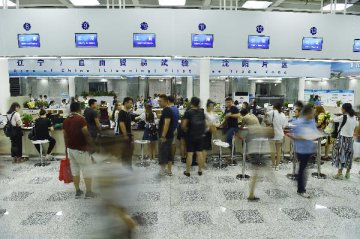
China's second batch of pilot free trade zones, namely Tianjin, Fujian, and Guangdong are expecting their third birthday in April this year. The three localities will further deepen their reforms on forging mature market mechanisms and opening up their service sector, the Shanghai Securities News reported on Monday.
Tong Jiadong, head of the China Pilot Free Trade Zone Research Center of Nankai University, said that the pilot zones in China had a long way to go in deepening their reforms and opening-up intiatives, especially in building a sound market environment for businesses.
He said that a pilot free trade zone was an attempt to build a mature market mechanism in a relatively closed area. In this aspect, the current pilot free trade zones need a bolder try at accumulating some experiences that could be learned nationwide.
Although achievements had been made, however, in Tong's view, the reforms of many zones had lingered on the surface which focused on a simplification of measures and links, rather than on mechanisms and institutions.
He suggested more profound reforms be carried out in these areas.
Mao Yanhua, deputy dean of the Free Trade Zone Comprehensive Research Institute of Sun Yat-sen University, predicted that broader reforms in Guangdong could be in the form of constructing a new institution for the open economy as a pioneer.
Mao said the reforms would focus on the liberalization of investments, trade facilitation, financial opening-up, as well as the facilitation of bilateral investments and financing.
Chen Jianxin, a researcher from the Fujian Pilot Free Trade Zone, said that it was a common appeal that the service sector should be opened up further.
Chen held that the negative list was still quite long and the opening-up of the service sector was not enough. In the 2017 version of the negative list, the health care and delivery services are still within the limit, he said.






















Latest comments